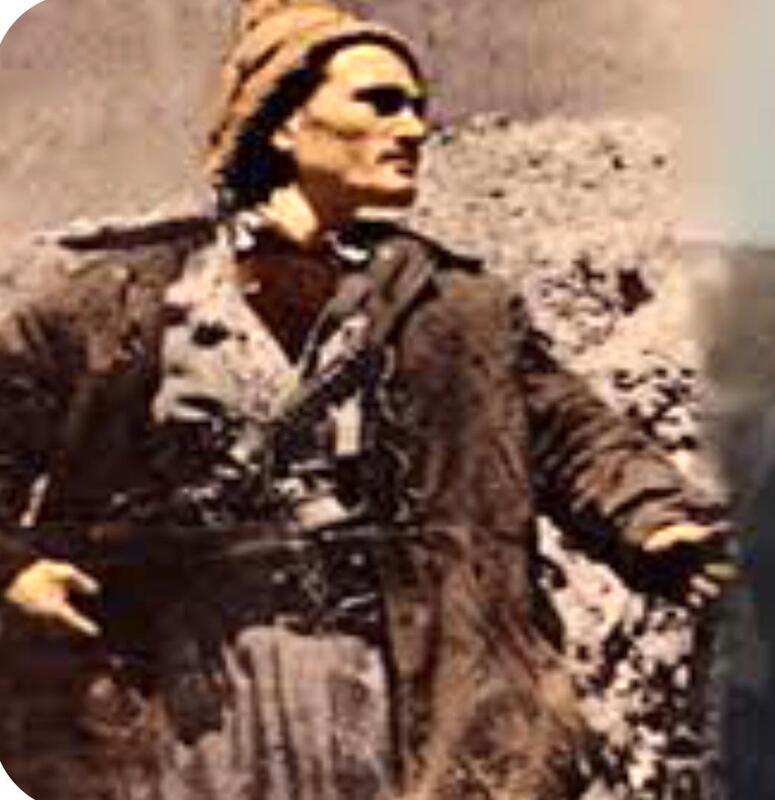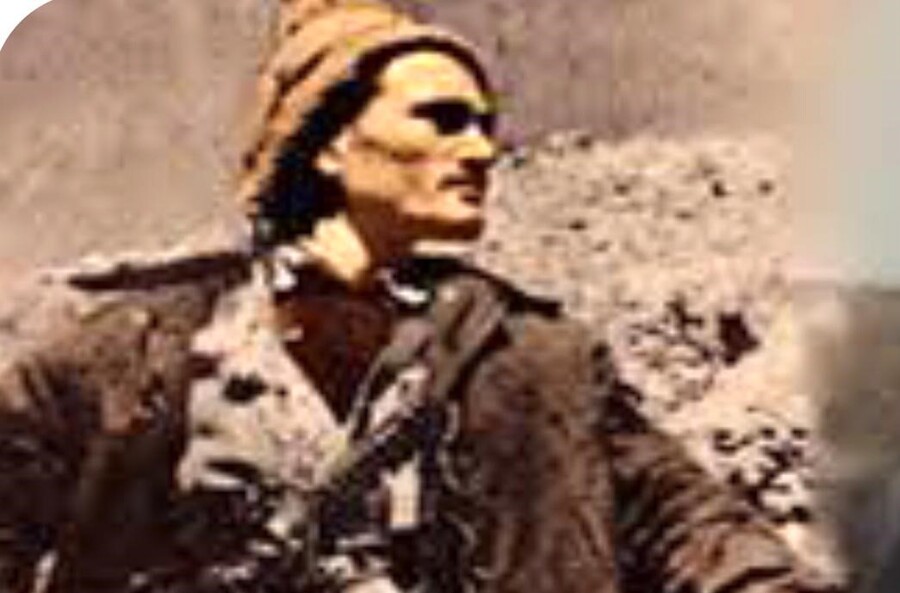"Ahmad Shalmashi" known as "Mullah Awareh" is one of the well-known names of the East part of Kurdistan who had an influential role in the armed movements of 1967 and 1968 against the corrupted regime of "Mohammad Reza Shah" of Pahlavi.
Apart from being a revolutionary figure he also possessed a literary and artistic sensibility and at any break time during the time he served as a Peshmarga, he created some texts that are worthy of attention.
But first, let us see who Mullah Awareh was, and then we will talk about some of his work briefly.
Mullah Awareh was born in 1933, that is 90 years ago in a religious and persecuted family in "Shalmash" village near "Sardasht". His father, Mullah Mohammad Amin Hamawandi Shalmashi, was also a religious priest and a patriot of Kurdistan and due to his patriotism for Kurdistan he named his son "Ahmad" in honor of "Faqeh Ahmad Darshamaneh" and "Ahmad Khani".
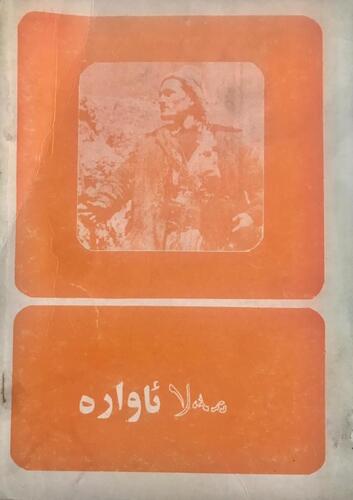
He finished his primary religious education with his father and then moved to "Bejweh" village to continue his education with "Mullah Saleh Bejwehyi". However, before he finished his education he read about the plight situation of Kurdistan, he felt a responsibility towards this situation and as a religious patriot, he contacted the members of the Democratic Party of Iran's Kurdistan at that time and became a member himself. After this incident, he chose the nickname "Awareh" (refugee) for himself and became Mullah Awareh. Since he was a skilled analyst and speaker analyzing the oppressed societies' situation, he became a political activist who helped the people of the villages of Kurdistan to understand their circumstances more precisely. In order to fulfill his goal, he spent a lot of time in the villages of Sardasht, Mahabad, Piranshahr, and Baneh. Later he joined the revolutionary forces of the South part of Kurdistan to finish his military training and he served well alongside them. He returned to the East part of Kurdistan in 1964 to continue his political activities in the Party.
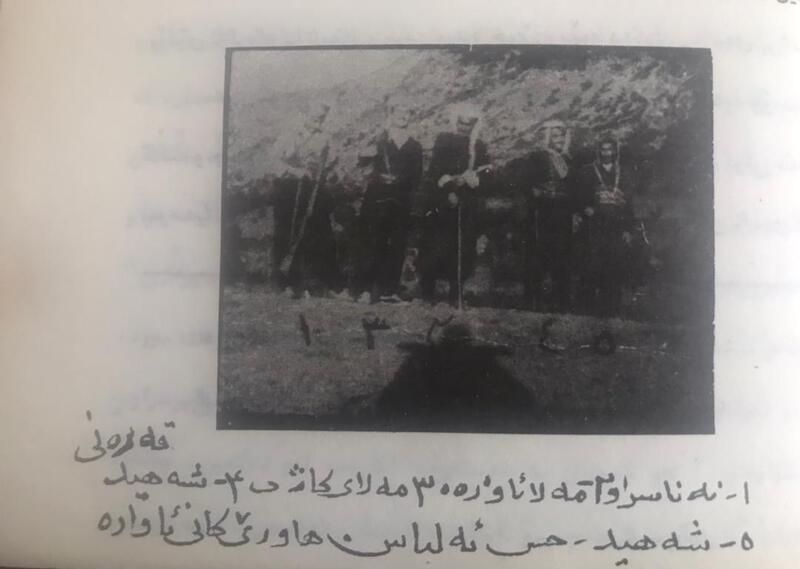
This time, he got closer to the poor and oppressed people of Kurdistan and he understood their difficulties much better. On the other hand, since he could speak Arabic, Kurdish, and Persian and due to his access to Arabic and Persian newspapers and publications, his mind and thought broadened which led him to make himself responsible for something else. This time, not only he served as a political member of the party but he also felt an intellectual responsibility to do his best in writing down the sufferings of the oppressed people and the Kurdish movement in poetry or prose at any opportunity he got although very little because revolutionary activities do not leave one much spare time. Unfortunately, there is not much left of his work, but what has left shows that Mullah Awareh was a knowledgeable and sensible character who had his own method of thinking. He knew why he was revolting and he knew how to plant this revolution in Kurdish people's hearts so that it would continue.
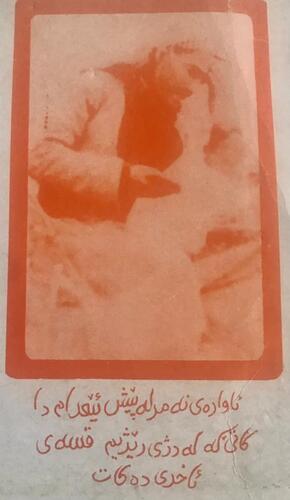
Mullah Awareh's poems are a reflection of the Kurdish people’s suffering from their oppressors. As the "orientalists" opinion on his poems, they are the poor class of society's voice against the authorities who have dominated over every human right. His most popular and most important poem is "The Cry of a tobacco farmer from Sardasht". In this poem, like "Hemin" did in a poem called "Araq u Tin" (Sweat and Heat), Mullah Awareh also talks about two distinct social classes, and the poem is narrated from a laborers’ viewpoint who talks about their sufferings. The tobacco farmer reveals the sufferings of the Kurdish oppressed and poor people. After he points out these sufferings and difficulties in detail in this poem, in the last part, Mullah Awareh proposes a solution to the readers and the lower class of society. Generally, this poem is both critical and it also shows the solution.
Some of this poem's verses:
I'm a poor tobacco farmer
With no home, land, or job
My children have no clothes and they're hungry
My life is full of risks
I am ashamed of facing people
With no clothes, shoes, or benefit
But what can I do when my fate is so dark
I collect a lot of products but it is not for me
And…
O, my enemy! For how long must I pay you
I wish your crown and reign end soon
Hey farmers and workers
Hey poor tobacco farmer
Let us unite in our heart
Let us revolt persistently
Let us try to the last minute
Let us kick this enemy out
Getting united is the only way
Revolution is the key to success
If we unite together
Live together and die together
We will get succeeded
We will rise and never fall
Persistent work and attempt
Without getting tired or taking a break
Is the only way to freedom
It is the key to a happy life
Although he was very young he had a strong sensibility. He was both a good poet and writer based on the text he wrote for his poem of "the tobacco farmer".
Apart from this, his poem named "Rash Bigiri" (to arrest at random) and some other poems of his, show us the life of a person who cares about freedom and the oppressed people. Unfortunately, this writer and great revolutionary figure got arrested due to the betrayal of a mercenary and got executed by shooting on July 31st, 1968 in Sardasht.
